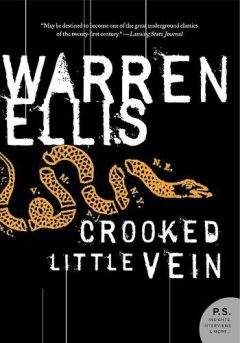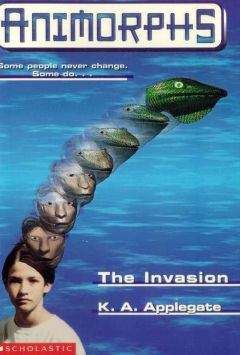On entering the amphitheatre (при приближении к амфитеатру), new objects of wonder presented themselves (представились новые причины: «объекты» для удивления). On a level spot (на ровном месте) in the centre (в центре) was a company of odd-looking personages (была компания странно выглядящих личностей) playing at nine-pins (играющих в кегли). They were dressed in a quaint outlandish fashion (они были одеты по старинной заморской моде; quaint [kweInt] — необычный и привлекательный; старомодный и изящный); some wore short doublets (некоторые носили короткие камзолы; to wear [wFq] — wore [wO:] — worn [wO:n] — носить /об одежде/), others jerkins (другие — короткие куртки), with long knives in their belts (с длинными ножами за поясами), and most of them had enormous breeches (на большинстве из них были широченные штаны; enormous [I’nO:mqs] — громадный; гигантский, обширный; чудовищный), of similar style with that of the guide's (похожего стиля с тем, что у проводника). Their visages, too, were peculiar (их лица тоже были своеобразными; peculiar [pI’kju:ljq] — специфический; особенный, своеобразный; необычный, особый, специальный): one had a large beard (у одного была большая борода; beard [bIqd] — борода, усы, растительность на лице /у человека/; бородка /у животных/), broad face (широкое лицо), and small piggish eyes (и маленькие поросячьи глазки): the face of another seemed to consist entirely of nose (лицо другого, казалось, состояло из одного только носа; entirely [In’taIqlI] — вполне, всецело, полностью, совершенно, совсем), and was surmounted by a white sugar-loaf hat (увенчанное белой, похожей на сахарную голову, шляпой; surmounted — увенчанный), set off with a little red cock's tail (украшенной маленьким красным пером из петушиного хвоста; to set off [set Of] — уравновешивать; оттенять, выгодно подчеркивать). They all had beards, of various shapes and colors (у них всех были бороды разнообразных форм и цветов).
On entering the amphitheatre, new objects of wonder presented themselves. On a level spot in the centre was a company of odd-looking personages playing at nine-pins. They were dressed in a quaint outlandish fashion; some wore short doublets, others jerkins, with long knives in their belts, and most of them had enormous breeches, of similar style with that of the guide's. Their visages, too, were peculiar: one had a large beard, broad face, and small piggish eyes: the face of another seemed to consist entirely of nose, and was surmounted by a white sugar-loaf hat, set off with a little red cock's tail. They all had beards, of various shapes and colors.
There was one who seemed to be the commander (там был один, который казался командиром). He was a stout old gentleman (он был плотным, пожилым джентльменом), with a weather-beaten countenance (с обветренным лицом: «с избитым погодой лицом»; countenance [‘kaVntInqns] — выражение /лица, глаз/; лицо); he wore a laced doublet (он носил = на нем был камзол с галунами), broad belt and hanger (широкий ремень и кортик), high crowned hat and feather (высокую шляпу с пером; crown — венок; венец; корона; to crown — венчать, увенчивать, завершать /верхнюю часть чего-л./), red stockings (красные чулки), and high-heeled shoes (и башмаки на высоком каблуке), with roses in them (с розами на них). The whole group reminded Rip of the figures in an old Flemish painting (вся группа напомнила Рипу фигуры на старой фламандской картине), in the parlor of Dominic Van Shaick (в гостиной Доминика ван Шейка), the village parson (деревенского пастора), and which had been brought over from Holland at the time of the settlement (и которая была привезена из Голландии во времена /первого/ поселения; to bring [brIN] — brought [brO:t] — brought — приносить, привозить; приводить; доставлять; to settle — поселить/ся/; населять, заселять /какой-л. район/).
There was one who seemed to be the commander. He was a stout old gentleman, with a weather-beaten countenance; he wore a laced doublet, broad belt and hanger, high crowned hat and feather, red stockings, and high-heeled shoes, with roses in them. The whole group reminded Rip of the figures in an old Flemish painting, in the parlor of Dominic Van Shaick, the village parson, and which had been brought over from Holland at the time of the settlement.
What seemed particularly odd to Rip was (что казалось особенно странным Рипу, было; particular [pq’tIkjulq] — редкий, особенный; особый, специфический), that though these folks were evidently amusing themselves (что, хотя эти люди явно развлекались), yet they maintained the gravest faces (все же они сохраняли наисерьезнейшие лица; grave — важный, степенный, серьезный; мрачный, печальный), the most mysterious silence (самую загадочную тишину = загадочно молчали), and were, withal (и были к тому же), the most melancholy party of pleasure (самой меланхоличной компанией /любителей/ развлечений) he had ever witnessed (/которую/ он когда-либо видел; to witness [‘wItnIs] — быть свидетелем; давать показания; заверять). Nothing interrupted the stillness of the scene (ничто не прерывало тишину этой сцены) but the noise of the balls (кроме шума шаров), which, whenever they were rolled (которые всякий раз, когда их катали), echoed along the mountains (отдавались эхо в горах) like rumbling peals of thunder (как громыхающие раскаты грома).
What seemed particularly odd to Rip was, that though these folks were evidently amusing themselves, yet they maintained the gravest faces, the most mysterious silence, and were, withal, the most melancholy party of pleasure he had ever witnessed. Nothing interrupted the stillness of the scene but the noise of the balls, which, whenever they were rolled, echoed along the mountains like rumbling peals of thunder.
As Rip and his companion approached them (как только Рип и его товарищ приблизились к ним), they suddenly desisted from their play (они неожиданно оторвались от своей игры), and stared at him with such fixed statue-like gaze (и уставились на него таким застывшим, как у статуи, взглядом), and such strange, uncouth lack-lustre countenances (и с таким странным, непривычно тусклым: «лишенным блеска» выражением; lack [lxk] — недостаток, нужда; отсутствие; lustre [‘lAstq] — глянец, блеск; лоск, великолепие; люстра; uncouth — странный, непривычный; неуклюжий; грубоватый, грубый, неотесанный), that his heart turned within him (что его сердце перевернулось внутри него), and his knees smote together (и его колени ударились одно о другое; to smite [smaIt] — smote [smqVt] — smitten [smItn] / smote — ударять; хлопать). His companion now emptied the contents of the keg into large flagons (его товарищ сейчас перелил: «опустошил» содержимое бочонка в большие графины; flagon [‘flxgqn] — графин или большая бутыль со сплюснутыми боками); and made signs to him to wait upon the company (и делал ему знаки, чтобы он отнес их компании; to wait upon — прислуживать). He obeyed with fear and trembling (он послушался со страхом и дрожью); they quaffed the liquor in profound silence (они осушили спиртное залпом в полной: «глубокой» тишине; to quaff [kwQ:f] — пить большими глотками; осушать залпом), and then returned to their game (а затем вернулись к игре).
As Rip and his companion approached them, they suddenly desisted from their play, and stared at him with such fixed statue-like gaze, and such strange, uncouth lack-lustre countenances, that his heart turned within him, and his knees smote together. His companion now emptied the contents of the keg into large flagons; and made signs to him to wait upon the company. He obeyed with fear and trembling; they quaffed the liquor in profound silence, and then returned to their game.
By degrees Rip's awe and apprehension subsided (постепенно страх и опасение Рипа затихали). He even ventured (он даже осмелился; to venture [‘ventSq] — рисковать /чем-л./; ставить на карту; отважиться, осмелиться), when no eye was fixed upon him (когда на него никто не смотрел: «когда ни один взгляд не был остановлен/«зафиксирован» на нем»), to taste the beverage (попробовать напиток), which he found had much of the flavor of excellent Hollands (который, как он нашел, имел много общего по вкусу с отличной голландской водкой). He was naturally a thirsty soul (он был, по естеству своему, жаждущей душой; thirsty [‘TWstI] — томимый жаждой; вызывающий жажду; иссохший, высохший; жаждущий), and was soon tempted to repeat the draught (и вскоре соблазнился повторить глоток; draught [drO:t] — глоток /производное от to draw — тянуть/). One taste provoked another (одна проба спровоцировала другую); and he reiterated his visits to the flagon so often (и он повторял свои подходы к графину так часто; to reiterate [ri:‘ItqreIt] — повторять; делать снова и снова) that at length his senses were overpowered (что в конце концов его сознание было подавлено; senses [‘sensIz] — мн.ч. сознание: «чувства» = пять чувств /обоняние, осязание, зрение, слух, вкус/; to overpower — преодолевать, побеждать, одолевать), his eyes swam in his head (его глаза плавали в голове = все поплыло перед его глазами; to swim [swIm] — swam [swxm] — swum [swAm] — плавать; плавно двигаться; кружиться), his head gradually declined (его голова постепенно склонилась), and he fell into a deep sleep (и он впал в глубокий сон: «крепко заснул»; to fall [fO:l] — fell [fel] — fallen [fO:lqn] — падать; идти; находить).
By degrees Rip's awe and apprehension subsided. He even ventured, when no eye was fixed upon him, to taste the beverage, which he found had much of the flavor of excellent Hollands. He was naturally a thirsty soul, and was soon tempted to repeat the draught. One taste provoked another; and he reiterated his visits to the flagon so often that at length his senses were overpowered, his eyes swam in his head, his head gradually declined, and he fell into a deep sleep.
On waking (при пробуждении), he found himself on the green knoll (он обнаружил себя на зеленом холмике) whence he had first seen the old man of the glen (с которого впервые увидел старика из долины). He rubbed his eyes (он потер свои глаза) — it was a bright sunny morning (это было яркое солнечное утро). The birds were hopping and twittering among the bushes (птички прыгали и чирикали в кустах), and the eagle was wheeling aloft (и высоко парил орел), and breasting the pure mountain breeze (и разрывал грудью чистый горный ветер). "Surely," thought Rip (точно, — подумал Рип), "I have not slept here all night (/уж/ не проспал /ли/ я здесь всю ночь)." He recalled the occurances before he fell asleep (он припомнил произошедшее до того, как он заснул: «что случилось прежде, чем он заснул»; occurrence [q’kq:rqns] — происшествие, случай; местонахождение). The strange man with a keg of liquor (странный человек с бочонком спиртного) — the mountain ravine (горное ущелье) — the wild retreat among the rocks (фантастическое убежище среди камней) — the wobegone party at nine-pins (скорбную партию в кегли; woebegone [,wqVbI’gOn] — скорбный, безутешный, удрученный) — the flagon (графин) — "Oh! that flagon! (о! этот графин!) that wicked flagon (этот злодейский графин; wicked [‘wIkId] — злой; безнравственный; страшный; плохой)"! thought Rip (подумал Рип) — "what excuse shall I make to Dame Van Winkle (какое же оправдание я приготовлю для хозяйки Ван Винкль)!"



